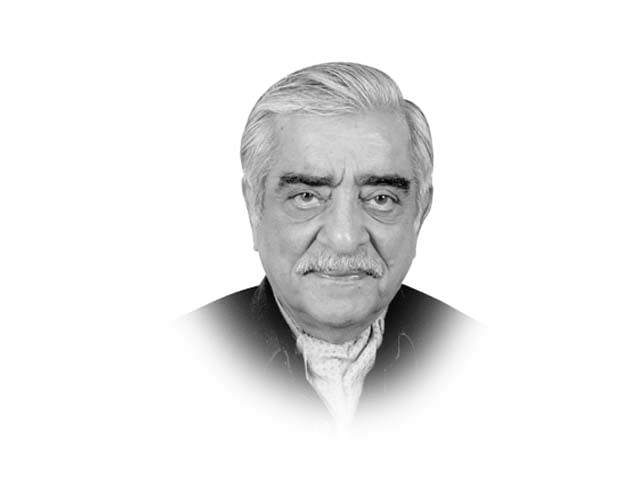Will peace follow Iraq’s elections?
Despite apparently successful elections a long period of turmoil lies ahead for Iraq with little prospect for peace.

The writer was foreign secretary from 1994-97 and also served as Pakistan’s ambassador to Iran (1992-94) and the
US (1990-91)
The elections may have been relatively peaceful. There were dozens of attacks on Election Day that left 14 people dead, but that was a small number compared to the 160 that died in the past week and the 2,258 killed so far in 2014 up to the last week of April. Ironically, observers suggest that the Iraqis in the Shia-majority provinces have voted for al Maliki because they view him as the ‘strongman’ who is fighting to hold Iraq together. Many other Shias, however, are deeply distrustful of al Maliki and importantly, some of this distrust is apparent in the elliptical statements from Ayatollah Sistani — whose influence on religious Shias is extremely strong.
Will al Maliki’s probable victory bring peace? Since January the security forces have lost control of large chunks of the Anbar province, west of Baghdad, to aggrieved Sunni fighters, some of them proclaiming allegiance to al Qaeda. These fighters and Sunnis all over Iraq maintain that Maliki has imprisoned, killed and squeezed them out of public life since he was elected eight years ago. Anbar province and particularly the now famous city of Fallujah was the area in which the famous “Sunni Awakening” had defeated or eliminated al Qaeda in Iraq.
Now, however, Maliki has so alienated the Sunnis that those very tribes that had provided the fighters for the ‘Awakening’ are allying themselves with the ISIS (Islamic State of Iraq and Syria) insurgents and have taken control of Fallujah and partially of the provincial capital, Ramadi. According to official Iraqi figures, some 592 people were killed in Anbar in the first three months of this year. Maliki has sworn to rid Iraq of these forces but has done little to win the support of the disenfranchised Sunnis who believe that they are in a struggle for their survival. His relationship with Iran, which uses Iraq for channelling supplies to Bashar al Assad’s forces in Syria, has further antagonised the Sunnis and of course, the United States. Sunni monarchs in the region will, as part of the sectarian battle that has engulfed the Muslim world, be offering material as much as moral support to the Iraq’s Sunnis in their struggle for winning back some of the political power they had once enjoyed.
At the other end of the country, Maliki is having little success in bringing the Kurds around to some arrangement that would not mean total autonomy and even independence for the Kurdish region. The Kurds, while showing obvious signs of division within their ranks, are at the moment enjoying greater peace and greater prosperity — thanks to the independent oil deals they have made in defiance of Baghdad — and they will be loath to surrender any of this autonomy.
Iraq has been accustomed to ‘strongman’ rule and a measure of political turmoil, but given the regional situation and particularly the raging conflict in Syria, Iraq is now facing many more dangers, including the danger of disintegration. Few observers believe that the authoritarian Maliki has the requisite leadership skills to overcome these challenges.
Despite the apparently successful elections — lauded by US Secretary of State John Kerry — a long period of turmoil lies ahead for Iraq with little prospect for the peace that the country urgently needs.
Published in The Express Tribune, May 5th, 2014.
Like Opinion & Editorial on Facebook, follow @ETOpEd on Twitter to receive all updates on all our daily pieces.















COMMENTS
Comments are moderated and generally will be posted if they are on-topic and not abusive.
For more information, please see our Comments FAQ